William Parker - Centering: Unreleased Early Recordings 1976-1987 (2012)
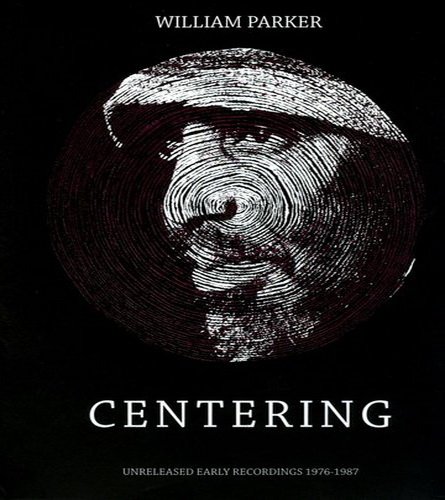
Artist: William Parker
Title: Centering: Unreleased Early Recordings 1976-1987
Year Of Release: 2012
Label: NoBusiness Records
Genre: Jazz
Quality: FLAC (tracks+.cue,log)
Total Time: 07:20:48
Total Size: 2.21 GB
WebSite: Album Preview
Tracklist:Title: Centering: Unreleased Early Recordings 1976-1987
Year Of Release: 2012
Label: NoBusiness Records
Genre: Jazz
Quality: FLAC (tracks+.cue,log)
Total Time: 07:20:48
Total Size: 2.21 GB
WebSite: Album Preview
CD1 - William Parker-Daniel Carter Duo {01:16:04}
01. Thulin (28:34)
02. Time and Period (25:52)
03. Commitment (21:38)
CD2 - Centering Dance Music Ensemble 1980 {01:05:18}
01. Facing the Sun, One Is Never the Same (24:21)
02. One Day Understanding (Variation on a Theme by Albert Ayler) (22:31)
03. Bass Interlude (1:58)
04. Tapestry (16:28)
CD3 - Centering Dance Music Ensemble 1980 {01:18:35}
01. Rainbow Light (26:57)
02. Crosses (Long Scarf over Canal Street) (18:38)
03. Entrusted Spirit (Dedicated to Bilal Abdur Rahman) (19:09)
04. Angel Dance (5:50)
05. Sincerity (6:39)
06. In the Thicket (1:22)
CD4 - Big Moon Ensemble {01:10:15}
01. Dedication to Kenneth Patchen (25:00)
02. Hiroshima, Part One (16:31)
03. Hiroshima, Part Two (28:44)
CD5 - Centering Big Band (Extending the Clues) {01:12:30}
01. Ankti (Extending the Clues) (13:00)
02. Munyaovi (Cliff of the Porcupine) (14:47)
03. Palatala (Red Light of Sunrise) (4:34)
04. Lomahongva (Beautiful Clouds Arising) (29:11)
05. Tototo (Warrior Spirit Who Sings) (10:58)
CD6 - Centering Dance Music Ensemble 1976 {01:18:06}
01. Illuminese/Voice (34:08)
02. Falling Shadows (13:05)
03. Dawn/Face Still, Hands Folded (30:53)
Parker and most of his cohorts were among the cadre of younger musicians who came of age during the loft era and have to some extent continued the ethos of self determinism which the lofts represented, not least in Parker's ongoing involvement in the annual Vision Festival. Interestingly the only participant on these discs who appeared on the 5 LP Wildflowers: The New York Loft Jazz Sessions (Douglas, 1977), probably the definitive chronicle of the loft jazz era, is saxophonist David S. Ware. So this is a milieu which left little trace and has been largely unheard until now. The first three discs contain small groups, while the last three document larger ensembles.
Disc one comprises two lengthy excerpts from a 90-minute studio date for Parker and reedman Daniel Carter, originally intended for issue on the bassist's Centering imprint. Carter plays with a certain detachment so that even the heat is deployed with a blow torch control. Never just a fire breather he also shows traces of the grainy lyricism which became more prevalent over the years. Carter remains shockingly underrated, and one can only speculate that the distribution of this recording at the time would have put him more firmly on the radar. Peaks of empathy and synchronicity punctuate their mercurial give and take. There is always a shape and contour to the bass narrative—what Parker calls in the booklet "compositional improvisation." For "Thulin" Parker sticks with his bow, displaying his uncanny facility, while on "Time and Period" he switches to a pliant pizzicato, walking tautly beside Carter's bop-derived licks. Carter's vocal embellishments are happily brief. Together they create a powerful, intense, purposefully paced and ultimately uplifting experience.
Rounding out the first disc is the 21-minute "Commitment." Intriguingly, this is a different selection to that released under the same title on Parker's Through Acceptance Of The Mystery Peace (Eremite, 1998), which clearly comes from the same concert, and both must represent fragments from a longer work. What a work it is: the composerly layers creating a spellbinding, at times serene affair, although belying the chamber instrumentation in places. A dirge like interplay between John Hagen's assertive tenor saxophone and Arthur Williams' clear and texturally inventive trumpet forms the defining characteristic over Parker's bowed undulations. Both sessions are real finds.
The entire second disc and the first track of the third consist of an extended showing by a trio featuring David S Ware's burly tenor saxophone accompanied by Parker and Denis Charles' dancing drums. Billed as the Centering Dance Ensemble, the almost unheard part of the offering are the sporadic footfalls of Parker's wife Patricia Nicholson. Although thematic material enters during the session, it is largely a blowing date. There are occasional hints of the majesty and gravitas Ware displayed with his classic quartet in the '90s, notably on the "Rainbow Light," but the brawny tone, bottomless imagination and prodigious stamina are already in place. Parker's elastic propulsion meshes well with Charles, and he takes a turbo-charged arco solo before a delicate investigation of harmonics to end "One Day Understanding (Variation on a Theme by Albert Ayler)." Inspired by Ed Blackwell, in his features Charles deconstructs the rhythm into its essential components, allocated between distinct parts of his kit, leavened by telling portions of silence.
Making up the central stretch of disc three is 38 minutes of a 1987 live duet between Parker and tenor saxophonist Charles Gayle. Coming a year before the saxophonist's initial clutch of Silkheart releases, this set now represents the reedman's earliest issued recording. Like Ware, Gayle possesses imagination and stamina to spare, imbued with a raw shamanistic spirituality. Both he and the bassist come out of the gate full pelt, stentorian bellows vying with abrasive pizzicato, both creating form from thin air. Parker's bowing makes a exceptionally fine blend with the saxophonist's braying invocation on "Entrusted Spirit (Dedicated to Bilal Abdur Rahman)."
Completing the disc are three short vocal pieces completely unlike anything heard thus far. Wordless but lyrical, the voices of Ellen Christi and Brenda Bakr are buoyed by the relaxed lope of Parker in combination with Rashid Bakr's drums. But it is the final "In The Thicket" which stands out, with the two women joined by Lisa Sokolov for a short but sweet a capella rendering of a Parker lyric, presaging the songs for his Raining On The Moon quintet in the '00s.
Disc four contains another outstanding live session. Drawing inspiration from Ornette Coleman's double quartet on Free Jazz (Atlantic, 1960), Parker's Big Moon Ensemble brought together an octet, comprising many of his closest associates over the years. Alto saxophonist Jemeel Moondoc's Muntu unit is here in its entirety, along with Carter once more and his fellow spokesperson from Other Dimensions in Music, trumpeter Roy Campbell. As with Ornette's masterpiece, individual soloists are cushioned, echoed and challenged by a chorus of horns and rhythm. Although the sound is slightly muffled (Carter suffers the most), it remains sufficiently clear to convey the energy, excitement and assuredness of an indispensable performance.
Collected on disc five are extracts from a rare high profile gig at the Kool Jazz Festival by Parker's Centering Big Band. Even though bringing together musicians who hadn't appeared together before, Parker provides only loose orchestrations, relying instead on the smarts of his players. It works like a dream, occasionally murky, mostly exciting and at times dazzling, as the seething mass parts for hot solos, especially by Ware and Campbell on flugelhorn, which bloom before being subsumed back into the bristling nexus. Other highlights come during a series of pre-planned duets in "Lomahongva (Beautiful Clouds Arising)," where Moondoc, Ware and baritone saxophonist Charles Tyler excel. Voices are integrated into the ensemble just like any other instrument, but also feature in the charts which make effective use of unison riffs, recalling British pianist Keith Tippett's arrangements for his Centipede orchestra. In the final "Tototo (Warrior Spirit Who Sings)" the successful contrast of descending phrases for saxophone, against soaring voices and horns produces a bittersweet elegy. While it might be nice to know exactly who plays when, in the end one is just grateful that this music has escaped from the vaults.
The final disc is revelatory. It contains passages from a production by another version of the Centering Dance Ensemble, this time taking on a chamber feel in the absence of drums. The whole piece evokes a mass or liturgy, particularly in light of the final section where Parker declaims an affecting poem about his father's death. In "Illuminese/Voice" long slow lines for the leader's arco bottom end interweave with the contrapuntal trumpets of John Mingione and Malik Baraka, and the clarinet of Rozanne Levine. "Falling Shadows" is even better, an exquisitely modulating chorale for horns, voice and strings, which calls to mind Arvo Part in its simple beauty. For the extended closing selection, Parker deploys his resources thoughtfully, moving between call and response for Christi's voice and Levine's clarinet, the sawing violins of Billy Bang and Ramsey Ameen, and the concluding recitation (the only cut which has already seen release, as an 8-minute snippet on the 1998 Eremite issue). In the booklet, Parker recalls that this was the only dance-music piece done in this style. It suggests one unexplored avenue which might well bear further examination.
One of principal delights of this superb collection is that it so clearly establishes the antecedents for so much of Parker's subsequent output, demonstrating a breathtaking breadth and confidence in his expression, even at this early stage in his development. We are lucky to have Parker still active among us, given that so many of the participants here have now passed, but also to have this poignant reminder of an otherwise unsung scene.
-- John Sharpe
Disc one comprises two lengthy excerpts from a 90-minute studio date for Parker and reedman Daniel Carter, originally intended for issue on the bassist's Centering imprint. Carter plays with a certain detachment so that even the heat is deployed with a blow torch control. Never just a fire breather he also shows traces of the grainy lyricism which became more prevalent over the years. Carter remains shockingly underrated, and one can only speculate that the distribution of this recording at the time would have put him more firmly on the radar. Peaks of empathy and synchronicity punctuate their mercurial give and take. There is always a shape and contour to the bass narrative—what Parker calls in the booklet "compositional improvisation." For "Thulin" Parker sticks with his bow, displaying his uncanny facility, while on "Time and Period" he switches to a pliant pizzicato, walking tautly beside Carter's bop-derived licks. Carter's vocal embellishments are happily brief. Together they create a powerful, intense, purposefully paced and ultimately uplifting experience.
Rounding out the first disc is the 21-minute "Commitment." Intriguingly, this is a different selection to that released under the same title on Parker's Through Acceptance Of The Mystery Peace (Eremite, 1998), which clearly comes from the same concert, and both must represent fragments from a longer work. What a work it is: the composerly layers creating a spellbinding, at times serene affair, although belying the chamber instrumentation in places. A dirge like interplay between John Hagen's assertive tenor saxophone and Arthur Williams' clear and texturally inventive trumpet forms the defining characteristic over Parker's bowed undulations. Both sessions are real finds.
The entire second disc and the first track of the third consist of an extended showing by a trio featuring David S Ware's burly tenor saxophone accompanied by Parker and Denis Charles' dancing drums. Billed as the Centering Dance Ensemble, the almost unheard part of the offering are the sporadic footfalls of Parker's wife Patricia Nicholson. Although thematic material enters during the session, it is largely a blowing date. There are occasional hints of the majesty and gravitas Ware displayed with his classic quartet in the '90s, notably on the "Rainbow Light," but the brawny tone, bottomless imagination and prodigious stamina are already in place. Parker's elastic propulsion meshes well with Charles, and he takes a turbo-charged arco solo before a delicate investigation of harmonics to end "One Day Understanding (Variation on a Theme by Albert Ayler)." Inspired by Ed Blackwell, in his features Charles deconstructs the rhythm into its essential components, allocated between distinct parts of his kit, leavened by telling portions of silence.
Making up the central stretch of disc three is 38 minutes of a 1987 live duet between Parker and tenor saxophonist Charles Gayle. Coming a year before the saxophonist's initial clutch of Silkheart releases, this set now represents the reedman's earliest issued recording. Like Ware, Gayle possesses imagination and stamina to spare, imbued with a raw shamanistic spirituality. Both he and the bassist come out of the gate full pelt, stentorian bellows vying with abrasive pizzicato, both creating form from thin air. Parker's bowing makes a exceptionally fine blend with the saxophonist's braying invocation on "Entrusted Spirit (Dedicated to Bilal Abdur Rahman)."
Completing the disc are three short vocal pieces completely unlike anything heard thus far. Wordless but lyrical, the voices of Ellen Christi and Brenda Bakr are buoyed by the relaxed lope of Parker in combination with Rashid Bakr's drums. But it is the final "In The Thicket" which stands out, with the two women joined by Lisa Sokolov for a short but sweet a capella rendering of a Parker lyric, presaging the songs for his Raining On The Moon quintet in the '00s.
Disc four contains another outstanding live session. Drawing inspiration from Ornette Coleman's double quartet on Free Jazz (Atlantic, 1960), Parker's Big Moon Ensemble brought together an octet, comprising many of his closest associates over the years. Alto saxophonist Jemeel Moondoc's Muntu unit is here in its entirety, along with Carter once more and his fellow spokesperson from Other Dimensions in Music, trumpeter Roy Campbell. As with Ornette's masterpiece, individual soloists are cushioned, echoed and challenged by a chorus of horns and rhythm. Although the sound is slightly muffled (Carter suffers the most), it remains sufficiently clear to convey the energy, excitement and assuredness of an indispensable performance.
Collected on disc five are extracts from a rare high profile gig at the Kool Jazz Festival by Parker's Centering Big Band. Even though bringing together musicians who hadn't appeared together before, Parker provides only loose orchestrations, relying instead on the smarts of his players. It works like a dream, occasionally murky, mostly exciting and at times dazzling, as the seething mass parts for hot solos, especially by Ware and Campbell on flugelhorn, which bloom before being subsumed back into the bristling nexus. Other highlights come during a series of pre-planned duets in "Lomahongva (Beautiful Clouds Arising)," where Moondoc, Ware and baritone saxophonist Charles Tyler excel. Voices are integrated into the ensemble just like any other instrument, but also feature in the charts which make effective use of unison riffs, recalling British pianist Keith Tippett's arrangements for his Centipede orchestra. In the final "Tototo (Warrior Spirit Who Sings)" the successful contrast of descending phrases for saxophone, against soaring voices and horns produces a bittersweet elegy. While it might be nice to know exactly who plays when, in the end one is just grateful that this music has escaped from the vaults.
The final disc is revelatory. It contains passages from a production by another version of the Centering Dance Ensemble, this time taking on a chamber feel in the absence of drums. The whole piece evokes a mass or liturgy, particularly in light of the final section where Parker declaims an affecting poem about his father's death. In "Illuminese/Voice" long slow lines for the leader's arco bottom end interweave with the contrapuntal trumpets of John Mingione and Malik Baraka, and the clarinet of Rozanne Levine. "Falling Shadows" is even better, an exquisitely modulating chorale for horns, voice and strings, which calls to mind Arvo Part in its simple beauty. For the extended closing selection, Parker deploys his resources thoughtfully, moving between call and response for Christi's voice and Levine's clarinet, the sawing violins of Billy Bang and Ramsey Ameen, and the concluding recitation (the only cut which has already seen release, as an 8-minute snippet on the 1998 Eremite issue). In the booklet, Parker recalls that this was the only dance-music piece done in this style. It suggests one unexplored avenue which might well bear further examination.
One of principal delights of this superb collection is that it so clearly establishes the antecedents for so much of Parker's subsequent output, demonstrating a breathtaking breadth and confidence in his expression, even at this early stage in his development. We are lucky to have Parker still active among us, given that so many of the participants here have now passed, but also to have this poignant reminder of an otherwise unsung scene.
-- John Sharpe
Download Link Isra.Cloud
William Parker - Centering: Unreleased Early Recordings 1976-1987 (2012)
My blog
William Parker - Centering: Unreleased Early Recordings 1976-1987 (2012)
My blog
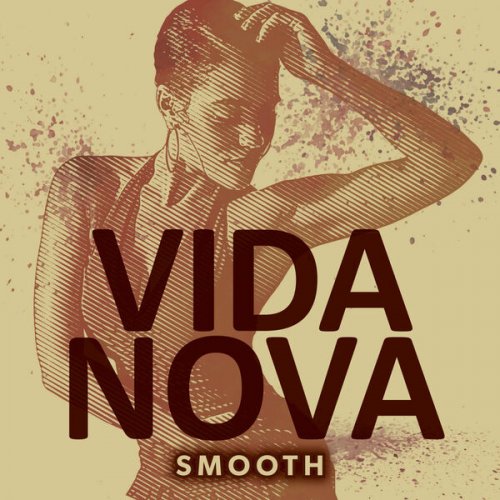
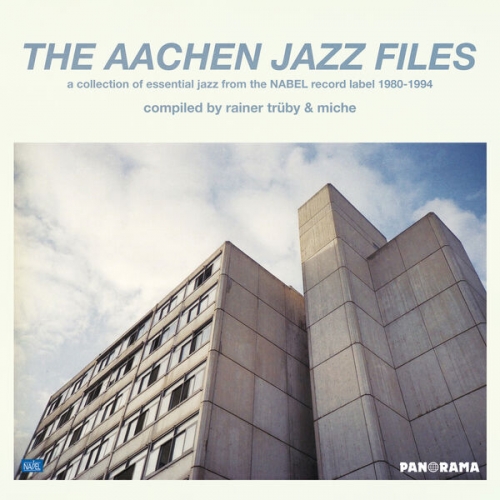
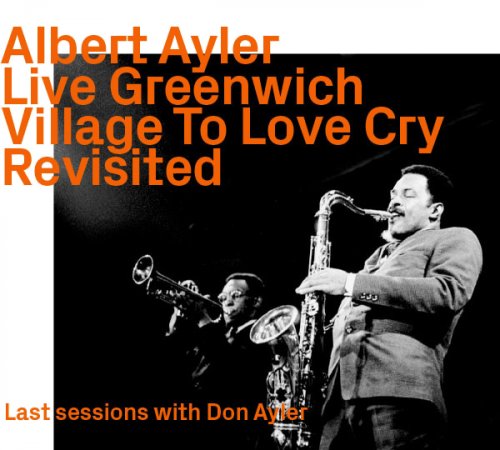
![Marius Neset - Time to Live (2026) [Hi-Res] Marius Neset - Time to Live (2026) [Hi-Res]](https://www.dibpic.com/uploads/posts/2026-02/1771945711_folder.jpg)
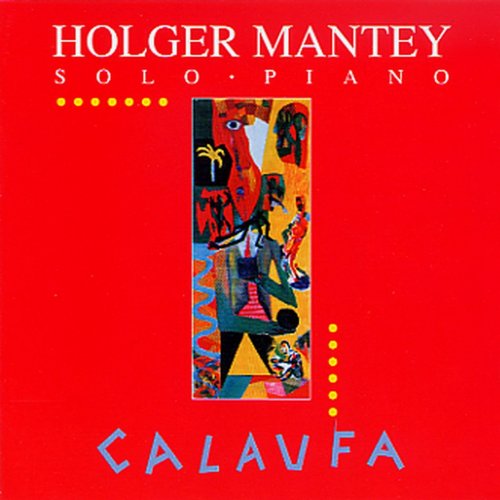
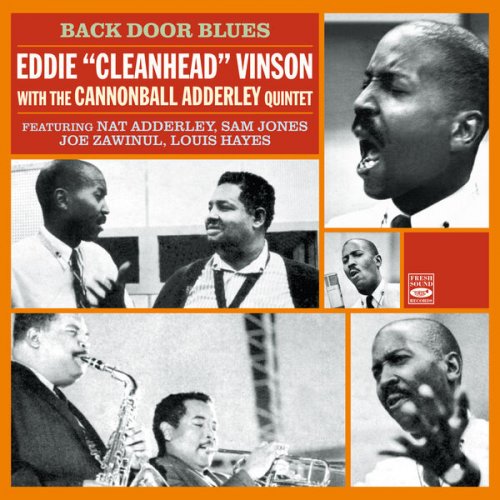
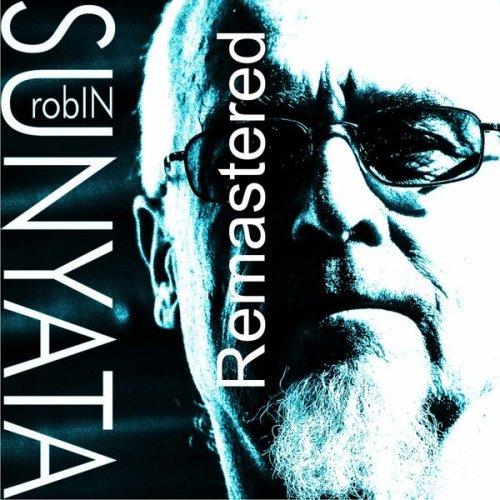
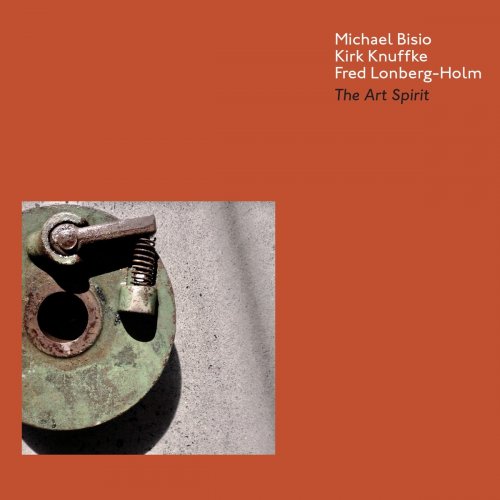
![VA - 20 Years Into An Infinite Musical Journey (2025) [SACD] VA - 20 Years Into An Infinite Musical Journey (2025) [SACD]](https://www.dibpic.com/uploads/posts/2026-02/1771834929_ff.jpg)